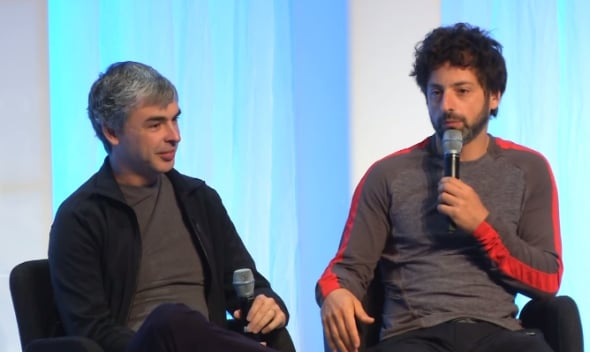Here’s an unsurprising factoid: Billionaires don’t understand what it’s like to not have enough money, especially when they’ve been rich virtually their entire adult lives. Google co-founders Sergey Brin and Larry Page sat down for a “fireside chat” at the Khosla Ventures CEO Summit, and they shared their thoughts on, among other thing, the present and future of the human workforce.
The conversation flowed that way naturally, and host Vinod Khosla asked an interesting question about the “machine-learning revolution” and how human jobs are being replaced. “But I do wonder if the vast majority of jobs that we know today, more than 50-percent might be replaced by machines that can do that human judgment piece better,” he said.

Brin and Page essentially agreed that machines have replaced many workers in the past and would likely continue to do so over the next couple of decades.
And then the conversation went off the rails. Page stated that the things we typically need to make ourselves happy are housing, security, and opportunities for our kids–which is an agreeable enough statement–but then his rich-guy myopia took over. “It’s not that hard for us to provide those things,” he said. “The amount of resources we need to do that, the amount of work that actually needs to go into that is pretty small. I’m guessing less than 1-percent at the moment. So the idea that everyone needs to work frantically to meet people’s needs is just not true.”
Allowing that he’s thinking in the larger sense about the need for certain kinds of labor, he’s completely wrong that individuals don’t have to work hard for those essentials. Many families in this country simply can’t achieve those things, and worse, many of those people are employed. One of the problems workers face in making ends meet is being underemployed–not being given enough hours to get over that “part-time” status hump, for example, and dealing with lower-than-necessary hourly wages.
Page’s solution is to copy what he says Richard Branson is trying in the UK by splitting one full time job into two part-time jobs. This measure, Page indicates, is to help people feel wanted and valuable by giving them something to do. He also thinks we should add more vacation time.
Surely everyone would be happy working less hours and having more vacation time. However, far too many people would be happier with a real, full-time job that paid them a living wage. Page and Brin may well be geniuses, and their contribution to the world via Google is almost immeasurable, but they’re apparently clueless when it comes to the harsh economy and dismal job market the rest of us are facing.






